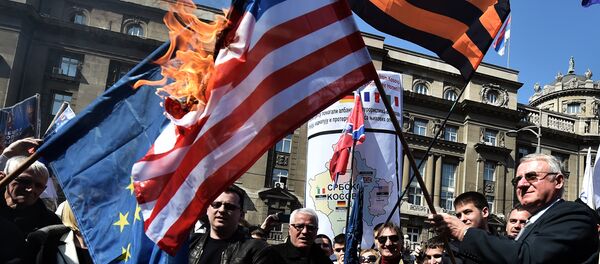President Aleksandar Vucic is a stalwart Europhile who has promised his people that they will join the bloc sooner than later, though he hasn’t yet explained how this will happen without amending the Serbian Constitution to remove the stipulation that Kosovo is an integral part of Serbia. His recent appointment of Ana Brnabic, a former USAID employee and well-known pro-Western figure, as Prime Minister suggested to some that it’s only a matter of time before this fateful step is taken, no matter how much domestic uproar it would provoke given Kosovo’s inseparable relationship to Serbia’s national identity as the cradle of its civilization.
In spite of all that, Belgrade’s leaders have indeed proven themselves to be loyal followers of Brussels over the years, so there’s a distinct possibility that they wouldn’t mind putting their political necks on the line in order to please their partner and make historic progress in formalizing Kosovo’s NATO-backed militant separation from Serbia.
Stevan Gajic, PhD in political science who works at the Institute of European Studies in Belgrade, and Danijela Dorado Radojicic, Serbian political observer from Belgrade, joined us to discuss the issue.
Want to sound off and share what you think about this? Send us an email at radio@sputniknews.com or find us on Facebook!



